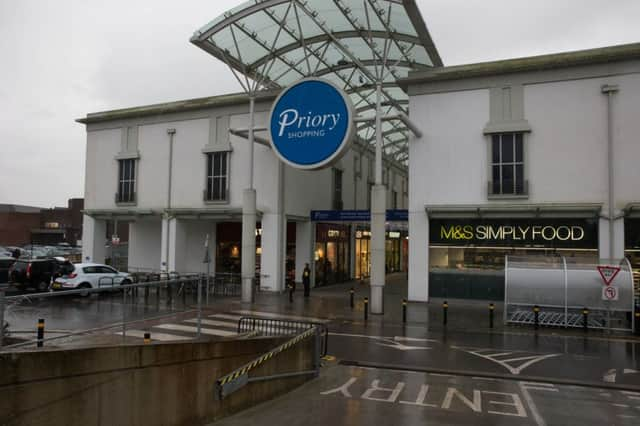Worksop: OAP's death at Priory Centre sparks anger at '˜ambulance shortage'


Security supervisor Matthew Bennett and security officer Daniel Vickers were on duty at the centre on Bank Holiday Monday when they spotted the man collapsed outside the Roman’s Originals shop.
Onlookers said the two security guards, who were later joined by a passsing nurse from Bassetlaw Hospital, did a “tremendous job” performing CPR and using a defibrillator on the man while they waited 30 minutes for the ambulance to arrive.
Sadly, the pensioner later passed away in hospital.
Advertisement
Advertisement
Worksop resident Karen Faram, who witnessed the scene, said: “I am left totally shocked and disgusted that this poor gentlemen was left fighting for his life for so long without professional care.
“I do have to also say ‘hats off’ to all the people caring for this man until the ambulance crew arrived - they were doing a tremendous job.”
Another shopper, who wrote anonymously to the Guardian, said: “I saw how emotionally and physically drained they were and know they did everything possible.
“I hope his family and friends can take some comfort from this.”
Advertisement
Advertisement
David Aunins, Priory Shopping Centre manager, said: “The centre security team were dedicated and exceptionally professional, with the ambulance team and first responder commending them on their actions and on how well they did to keep the man alive until they arrived.
“We would like to take this opportunity to send our deepest condolences to the gentleman’s family at this time.”
A ‘high volume of activity’ was blamed for the lengthy wait for an ambulance, and East Midlands Ambulance chiefs say the first resource was then sent to the scene.
Greg Cox, general manager at East Midlands Ambulance Service, said: “We are very sorry to the patient and their family.
Advertisement
Advertisement
“We were experiencing a high volume of activity at the time of the call and the first available resource was sent.
“Placement of defibs in areas such as shopping centres is part of our strategy to ensure immediate lifesaving intervention is available.
“We work closely with communities to place these in key areas, including shopping centres.
“Whilst we always aim to get to a patient as quickly as possible when someone is in cardiac arrest, chest compressions and defibrillation are the two key things needed to give the patient the best possible chance of survival,” he added.